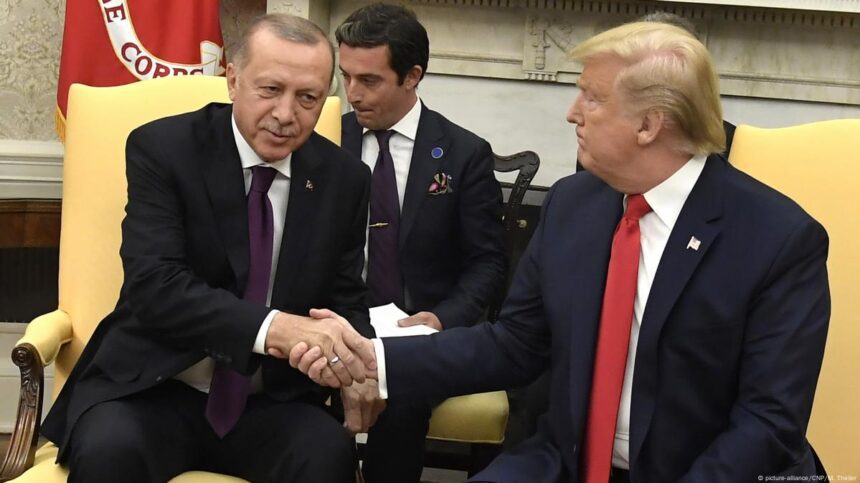In a bold and controversial statement, U.S. President-elect Donald Trump commended Turkish President Recep Tayyip Erdoğan for orchestrating what he described as an “unfriendly takeover” that toppled Syrian President Bashar al-Assad earlier this month. Speaking from his Mar-a-Lago resort, Trump characterized the operation as a strategic victory for Turkey and an efficient regime change with minimal loss of life.
“They wanted it for thousands of years, and he got it,” Trump remarked, emphasizing Erdoğan’s influence over the swift offensive led by Turkish-backed forces. “Those people who went in are controlled by Turkey,” he added, praising Erdoğan as a “smart guy” and “very tough.”
The fall of Assad’s regime marks a dramatic shift in Syria’s political landscape, led by the Turkish-backed Syrian National Army (SNA) and Hayat Tahrir al-Sham (HTS), an Islamist group previously linked to al-Qaeda. While the United States continues airstrikes against ISIS in Syria, Trump’s remarks signal a cautious acknowledgment of Turkey’s growing regional clout, underscoring the evolving geopolitical dynamics.
Trump’s statement comes amidst a backdrop of fluctuating U.S.-Turkey relations. Past tensions, such as Turkey’s purchase of Russia’s S-400 missile system and disputes over U.S. support for Kurdish militias in Syria, have recently been tempered by Turkey’s cooperation in approving Sweden’s NATO membership and facilitating a U.S.-Russia prisoner swap. However, deep-seated disagreements persist, particularly over Turkey’s opposition to the Syrian Democratic Forces (SDF), a key U.S. ally in the fight against ISIS.
Analysts suggest that Trump’s comments serve as a signal to both Syria’s new rulers and President Erdoğan that the United States is closely monitoring the situation. While Trump praised the efficiency of the Turkish-led operation, he also implied a warning, urging caution as Syria transitions to a new political order.
Globally, the reaction to Trump’s remarks has been mixed. Supporters of Ankara argue that Turkey’s actions have brought an end to years of brutal dictatorship under Assad, creating an opportunity for stability. Critics, however, worry about the implications of HTS’s involvement and the potential for Turkey to assert undue influence in shaping Syria’s future.
As the international community grapples with the fallout from Assad’s removal, Turkey’s role in the region remains under scrutiny. With Erdoğan at the helm, Ankara has positioned itself as a key player in Middle Eastern geopolitics, but questions remain about the long-term stability of Syria and the global response to Turkey’s expanding influence.
For now, Trump’s unfiltered praise of Erdoğan and Turkey’s actions has sparked both intrigue and concern, ensuring the Middle East remains a focal point of his incoming administration’s foreign policy agenda.



